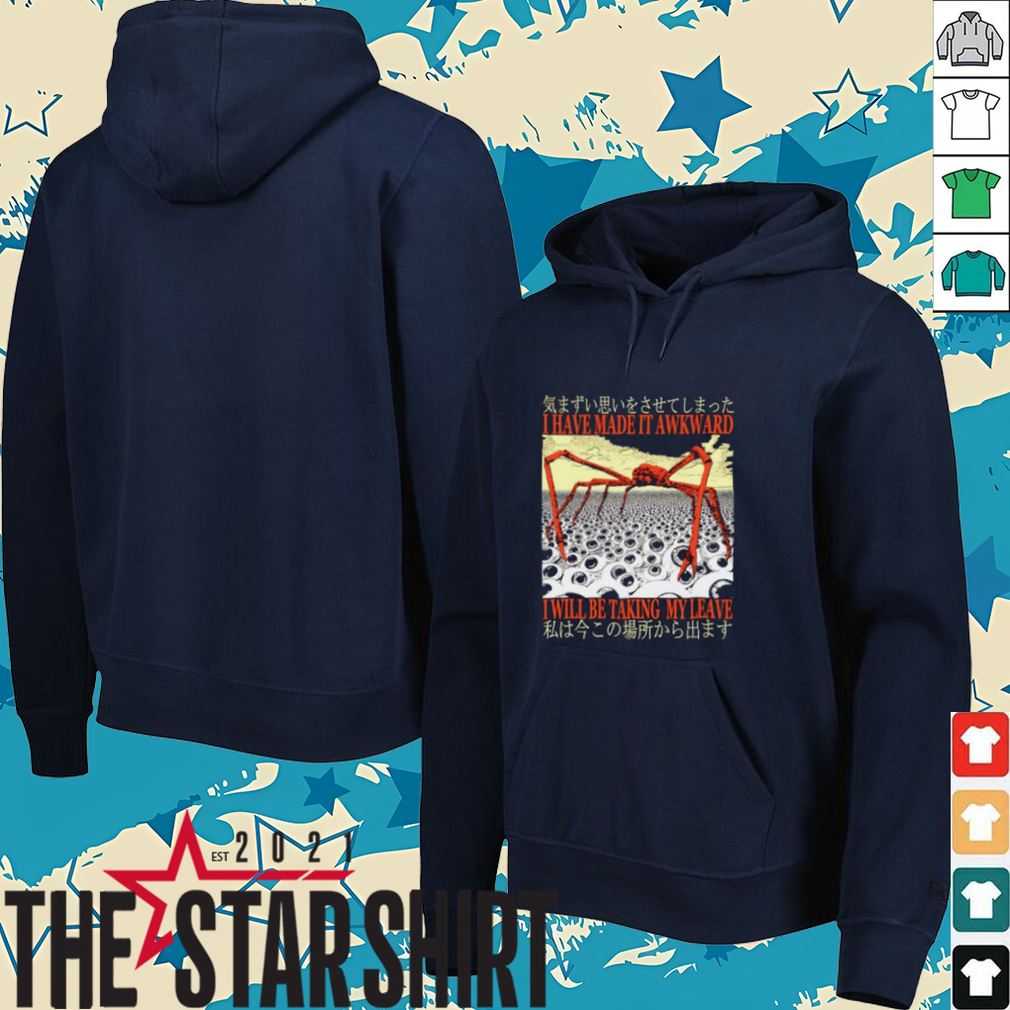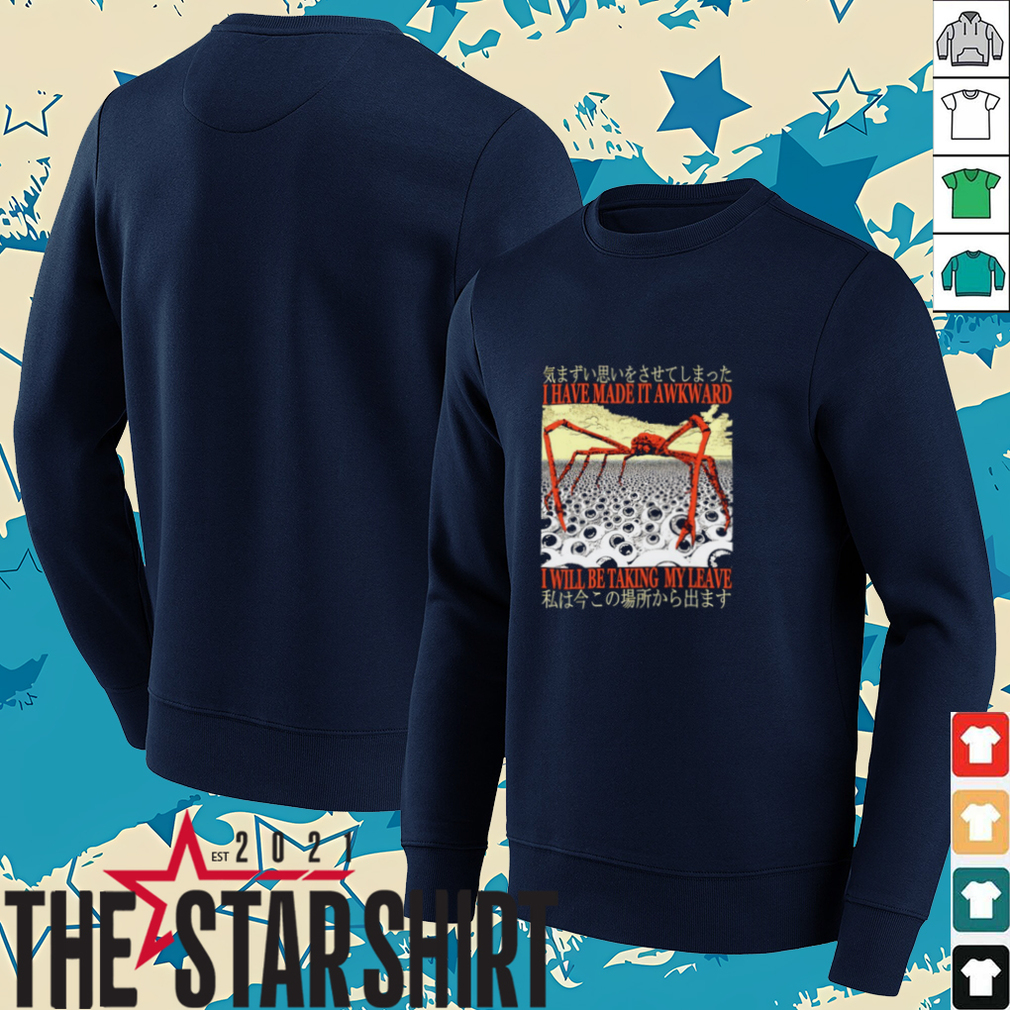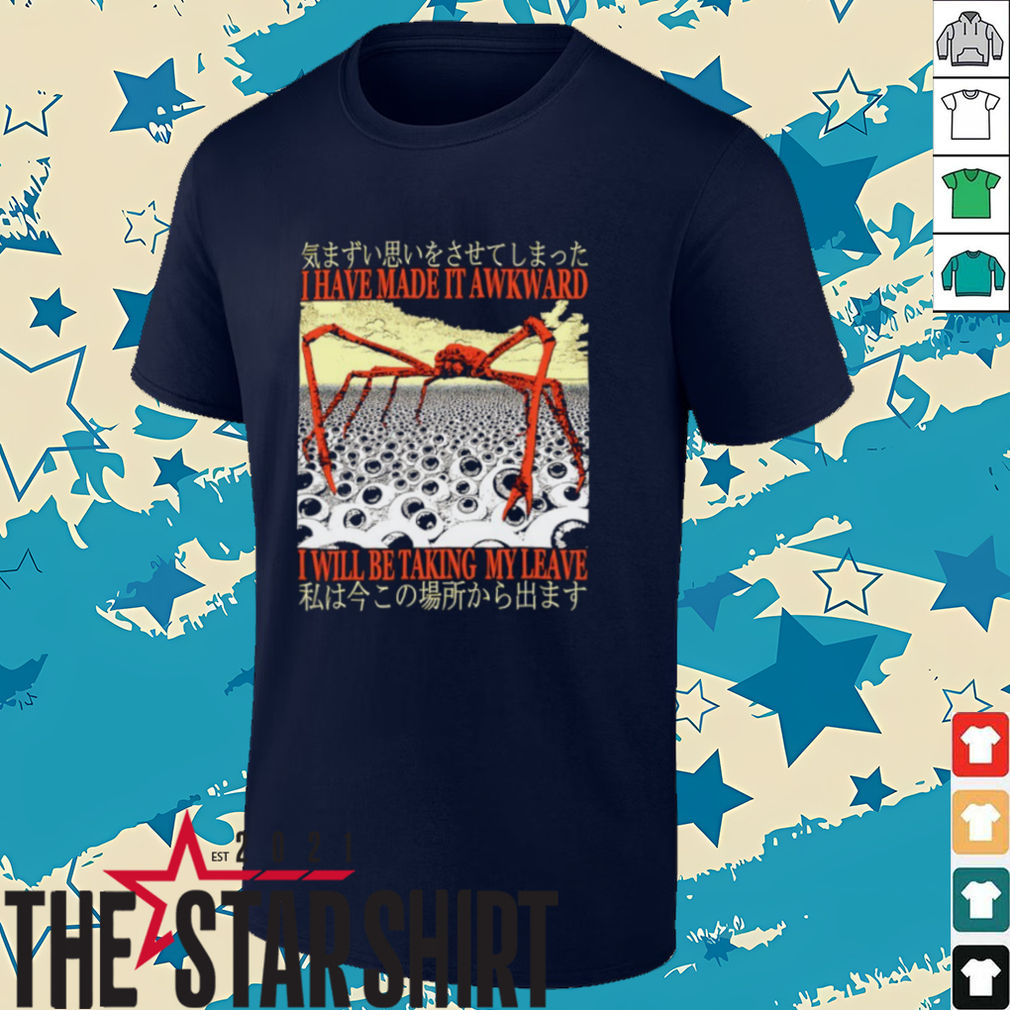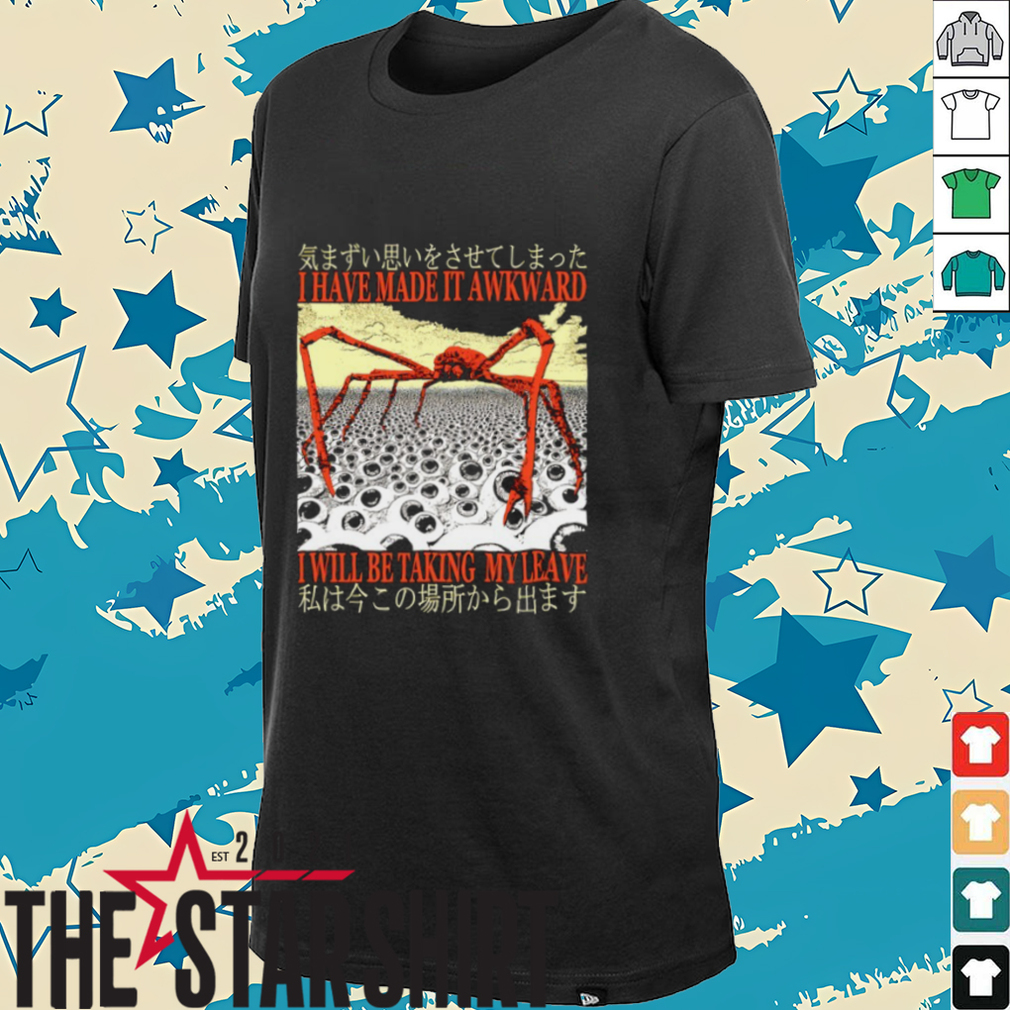The “I Have Made It Awkward I Will Be Taking My Leave Japanese Shirt”: A Masterclass in Relatable Humor
The **”I have made it awkward I will be taking my leave Japanese shirt”** is a prime example of a highly relatable, self-deprecating, and subtly witty piece of apparel that resonates with a broad audience. This shirt taps into a universal human experience: the uncomfortable moment, the social misstep, and the desire to gracefully (or perhaps not so gracefully) exit. The inclusion of “Japanese shirt” hints at a popular trend of English phrases on Japanese fashion, sometimes intentionally quirky or humorously direct. This isn’t just a shirt; it’s a badge of honor for the socially aware, a humorous acknowledgment of life’s cringe-worthy moments. But why does such a specific, self-effacing statement strike such a chord with so many people, and what’s the appeal of this unique blend of text and aesthetic?
The phrase **”I have made it awkward. I will be taking my leave.”** is a brilliant, concise narrative. It immediately conjures an image: someone, perhaps inadvertently, creating an uncomfortable silence or a conversational cul-de-sac, and then swiftly, albeit humorously, announcing their departure. This is a common social anxiety, and the shirt’s directness turns that anxiety into a laugh. It’s a form of **self-deprecating humor**, a comedic style where individuals make themselves the target of jokes. Research suggests that self-deprecating humor can be a powerful tool for connection, making the person seem more approachable, humble, and relatable. By admitting a common flaw (the ability to make things awkward), the wearer invites a sense of camaraderie and shared experience. It’s a bold claim of social misadventure, an emotional risk taken for the sake of a shared laugh.

The **”Japanese shirt”** aspect likely refers to the aesthetic or origin of the shirt, where English text is often used as a design element. This trend has gained significant traction, with some phrases being intentionally humorous, others having slight linguistic quirks (“Engrish”), and many simply using English for its visual appeal. This particular shirt falls into the category of direct, impactful English phrasing, often seen on casual streetwear that blends minimalist design with a clear, engaging message. It offers a unique style that combines a popular internet-age sentiment with a distinct fashion sensibility. If you appreciate shirts that carry a unique, meme-like quality, you might also like the New York Liberty Torch Player Skeleton Shirt, which similarly leverages a specific, somewhat quirky, visual and textual concept for its appeal.
—
The Universal Language of Awkwardness: Why This Shirt Resonates
The core appeal of the “I have made it awkward, I will be taking my leave” shirt lies in its profound relatability. Awkward social situations are a nearly universal human experience. What is it about these moments, and this shirt’s direct acknowledgement of them, that strikes such a chord with people?

From a missed high-five to an ill-timed comment or a conversational dead end, most people have experienced the cringeworthy sensation of contributing to an awkward silence or misunderstanding. This shirt acts as a humorous preemptive strike or a retrospective confession. It signals to others, “Yes, I know this feeling. I’ve been there, and I can laugh about it.” This shared understanding creates an immediate bond. Psychologists note that humor, especially self-deprecating humor, can reduce social tension and make individuals appear more likable and authentic. Instead of pretending to be perfectly smooth in every interaction, the shirt’s wearer openly embraces their human fallibility. It’s a refreshing change from the curated perfection often presented online, offering a dose of real-life honesty. This authenticity is a viral trigger, encouraging nods of recognition and knowing smiles from strangers who’ve undoubtedly uttered (or wished they could utter) a similar phrase. It’s a real-life success story of a simple sentence becoming a powerful statement of shared human experience.
—
The “Japanese Shirt” Aesthetic: English Text as Fashion Statement
The description “Japanese shirt” implies a particular aesthetic where English text is a prominent design element. This trend is fascinating, often playing with directness, unexpected phrasing, or even subtle mistranslations that add to the charm. What defines this “Japanese shirt” aesthetic with English text, and why has it become so popular globally?

The use of English text on clothing is a long-standing trend in Japanese fashion, often driven by its visual appeal and the perceived “coolness” or exoticism of a foreign language. What’s particularly interesting is the range of how English is used: from simple, clear statements like “I have made it awkward” to more poetic or abstract phrases, and sometimes, humorously literal or slightly garbled “Engrish.” This shirt falls into the category of clear, impactful English, but still embodies the minimalist yet expressive quality often associated with Japanese streetwear. It uses bold, legible font, often on a neutral background, allowing the text itself to be the primary visual focus. This approach emphasizes the message, turning the shirt into a wearable meme or a declaration of personality. This aesthetic offers a unique blend of global influence and local design sensibilities, creating a style that is both understated and powerfully communicative. It’s about making a statement without needing elaborate graphics, letting the words speak for themselves. For more variety, you can pair this type of text-based design with a fan favorite model, or explore upcoming textures, and collection patterns. I am also one of the most popular customers who enjoys the clever interplay of language and fashion.
—
The Art of the Exit: Humorous Ways to Depart a Difficult Situation
The phrase “I will be taking my leave” after “I have made it awkward” is a classic, understated, and often humorous way to signal a retreat from a socially uncomfortable situation. It highlights a universal desire for a dignified (or at least funny) escape. What makes this specific phrase so effective, and why do we gravitate towards such expressions in moments of social distress?

The beauty of “I will be taking my leave” is its formality contrasted with the informality of the “awkward” situation. This juxtaposition creates comedic effect. It’s a polite, almost theatrical, declaration of departure, as if the person is excusing themselves from a formal ball rather than a casual gathering where they just spilled a drink or made a poorly timed joke. This slight exaggeration adds to the humor and shows self-awareness. It’s a way of saying, “I recognize the situation, I take responsibility, and I’m enacting a solution.” In an era of constant social interaction, both online and off, moments of awkwardness are inevitable. Having a go-to, humorous phrase like this acts as a coping mechanism and a social lubricant. It allows for a lighthearted defusing of tension and provides a graceful (or at least memorable) exit strategy. The shirt allows the wearer to convey this sentiment without having to utter a word, a silent nod to their understanding of social dynamics and their willingness to laugh at themselves. It’s a charmingly honest way to navigate the pitfalls of human interaction.


























